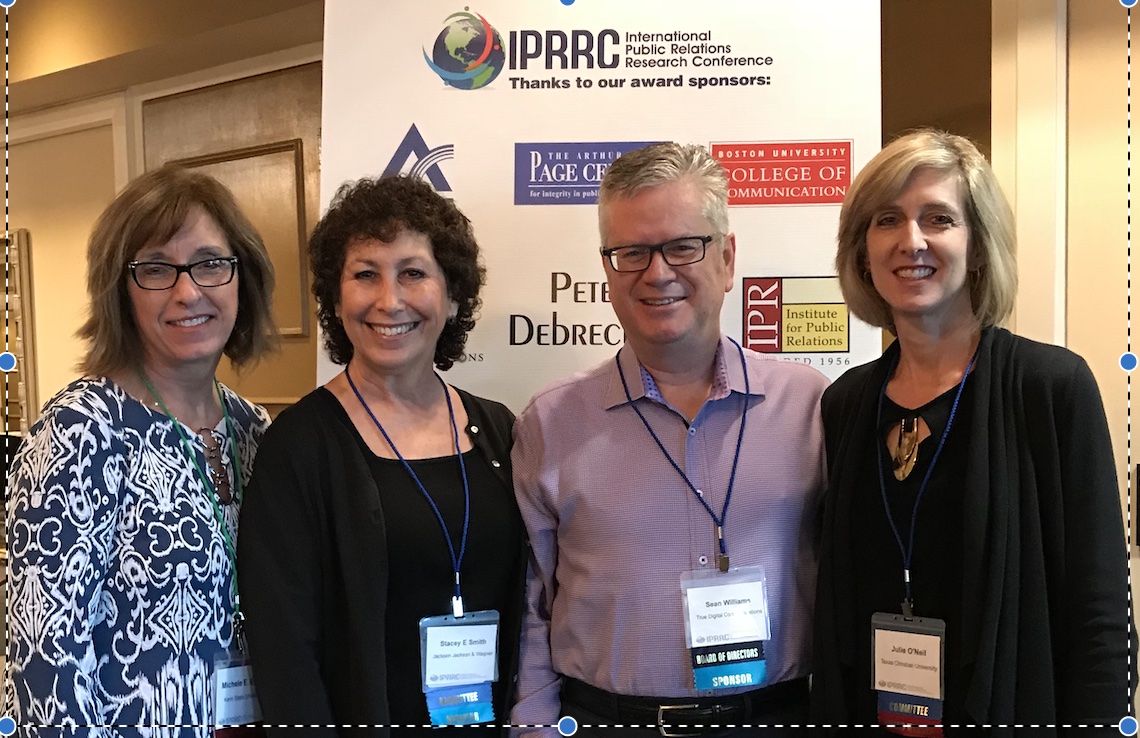
In just under two months (!!!) this lil’ ‘ol professor will become CEO of the International PR Research Conference. It’s been more than 15 years since I became involved in IPRRC, almost as long ago as I joined the Institute for Public Relations Measurement Commission.
As I’ve been doing some fundraising for the conference, an old series of questions filtered up through the not inconsiderable fog of memory and distraction of current academic events. And one was a big question.
Why should anyone who’s not in PR higher ed even go to a conference that’s mainly for professors and graduate students to present the research they’re doing? Fortunately, the answer to that thorny query popped up in short order:
Because research matters to the practice.
Those of us who grew up in the profession may or may not have had coursework in research. As a University of Washington Political Science BA holder, I took my first real research course == Political Research Methods == in about 1990. I kept my fingers in the pie however, when I worked at KeyBank, DIY’g our employee surveys, and at “a large American Company” when I not only did research but published about it with Dr. Julie O’Neil.
I’m a bit of an anomaly, I realize, but I’d offer that anyone who does strategic communication should be tapping into the huge body of knowledge that research conferences present. It’s not just that we benefit from sharpening our intellectual saws, but that we, as people DOING the work, can be of nearly inestimable help to the academics who are studying it.
We like to say that IPRRC features research about the practice, by the practice and for the practice. Partnerships abound between academics and professionals, just ask Dr. Julie, or Stacey Smith, or Michele Ewing. As a pro, you could be next, expanding your mind, your network, maybe even your very concept of the world of StratComm.
You should come. This year, 2023. If you’re north of the Mason-Dixon Line, the location is a plus: Downtown Orlando, Fla., March 2-4. It’s a value-heavy conference = you get breakfast and lunch every day, you get two receptions, and you get an intellectual feast that will challenge you in the best ways. I’ve read the abstracts for what’s being presented, and it ranges from corporate social advocacy and responsibility, to crisis communication, to health communication, to social media, integrated communication… Like I said, a feast.
Why should you go? Because you owe it to yourself and to your employer/clients to keep that saw sharp as it can be.

